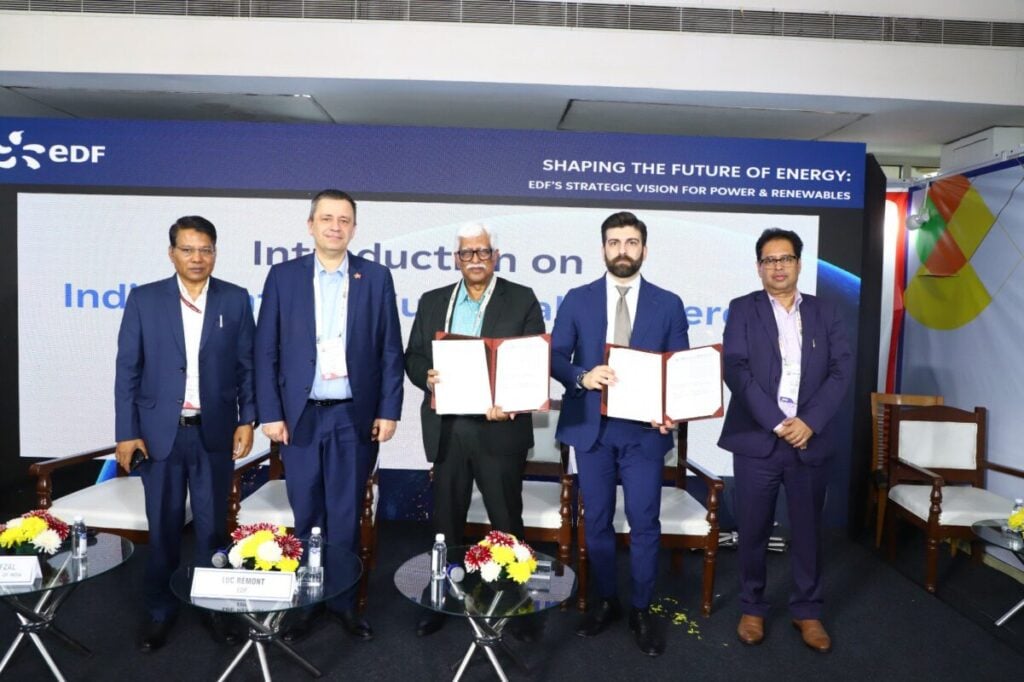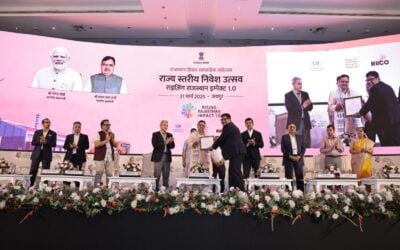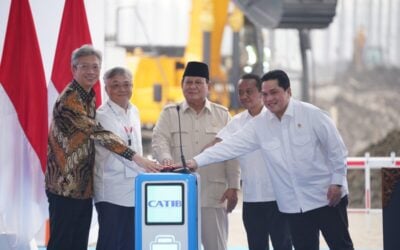
Adani Green Energy has been awarded a 1,250MW pumped hydro energy storage (PHES) project in Uttar Pradesh, India.
Indian conglomerate Adani Group’s renewables subsidiary announced earlier this week (25 February) that it had received a Letter of Award (LoA) from Uttar Pradesh Power Corporation Limited (UPPCL), which is responsible for electricity transmission and distribution in the state.
Enjoy 12 months of exclusive analysis
- Regular insight and analysis of the industry’s biggest developments
- In-depth interviews with the industry’s leading figures
- Annual digital subscription to the PV Tech Power journal
- Discounts on Solar Media’s portfolio of events, in-person and virtual
The project, Panaura Pumped Hydro Storage Project (PSP), will be built in Uttar Pradesh’s Sonbhadra district within the next six years, according to Adani Green Energy. The contract with the state-owned electricity company carries a minimum 40-year commitment.
India’s Central Electricity Authority (CEA) identified pumped hydro as a key technology alongside battery energy storage systems (BESS) to deliver a total of 74GW/411GWh of energy storage that the country’s electricity sector will need by 2031-2032.
Modelled in CEA’s National Electricity Plan 2023, the addition of around 47GW/236GWh of battery storage and 27GW/175GWh of long-duration pumped hydro would help integrate 500GW of non-fossil fuel electricity generation, including wind and solar PV, which India is targeting the addition of by 2030.
By 2047, as India pursues a 2070 net zero emissions target from all sectors, that requirement will rise to 90GW/540GWh of pumped hydro from a total of 320GW/2,380GWh of storage, including 230GW/1,840GWh of batteries.
According to a Capacity Addition Plan posted to CEA’s website, around 50,760MW of PHES plants are planned across Indian states to 2031-2032, with 730MW for delivery in the current 2024-2025 timeframe and 1,970MW across three projects in 2025-2026. Megawatt-hour capacities of projects are not included in that document but pumped hydro plants generally have between around 10-hour to 24-hour durations.
Last year, CEA gave fast-track status to a number of PHES projects. In August, it gave its approval to a 600MW project in Odisha and a 2,000MW project in Karnataka, and in September it did the same for two projects in Maharashtra totalling 2,500MW.
Adani Green Energy meanwhile said it plans to add more than 5GW of pumped hydro by 2030, with three plants already under construction: a 500MW plant and another of 1,800MW in Andra Pradesh, and a 1,500MW project in Maharashtra.
In related news, government-owned coal producer Coal India announced 23 February that it aims to form a joint venture (JV) company with the local subsidiary of France’s EDF to develop, own, operate and maintain pumped hydro plants and other hydroelectric facilities in India.
A term sheet was signed by Coal India business development director Debasish Nanda and EDF India CEO and director Federico D’Amico. Mohammad Afzal, joint secretary of India’s Ministry of Power and EDF CEO and chairman Luc Rémont were in attendance, along with other senior officials from Coal India and EDF.






